Every year on 9 October, Korea celebrates Hangeul Day (한글날), a holiday dedicated to the Korean alphabet.
This extraordinary writing system was created in 1443 by King Sejong the Great so that the Korean people could have their own alphabet, which would be easy to understand and useful for spreading literacy. It is the only writing system in the world whose date of creation is known with certainty, and for centuries it has been admired by scholars and linguists for its logical and scientific structure.
In more recent times, two important events have marked the history of Hangeul: in 1913, linguist Ju Sigyeong coined the term Hangeul (한글), and in 1922, the official Hangeul Day (한글날) was established.
Those who wish to learn more about the history of Hangeul can visit the museums dedicated to it.
One of the most famous is located under the golden statue of King Sejong the Great in Gwanghwamun Square in Seoul.
The statue, created in 2009 by sculptor Kim Young-won, is 9.5 metres tall. At its base is the entrance to the underground museum, which celebrates Sejong's reign and his innovations, also recounting the birth of the Korean alphabet.
Seoul is also home to the National Hangeul Museum, where you can immerse yourself completely in the Korean language, from its origins to the present day.Unfortunately, the museum was recently damaged by fire, but it is currently undergoing renovation so that it can reopen to the public soon.
In Italy, too, there are many ways to learn the Korean language; you can attend university courses taught by native speakers, or take online courses to learn the basics of Hangeul and some useful words.
The Korean Cultural Istitute in Rome also plays an important role, offering courses in Korean language and culture.
I had the pleasure of visiting it recently: the building is divided into thematic areas dedicated to various aspects of the country's culture. On the ground floor, for example, you can admire a visual installation dedicated to the “Four Korean Houses”, enter a reconstruction of a traditional house and experience the alphabet in an interactive way.
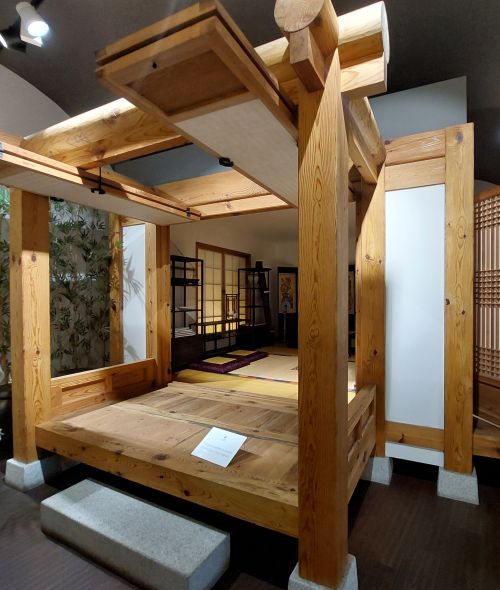
In one room, there was an electronic device that visitors could use to write their names in Korean and practise Hangeul characters. It was a wonderful experience and I hope to return soon, especially as the Institute often organises Korean art exhibitions and projects that interpret the country's culture in a modern way.
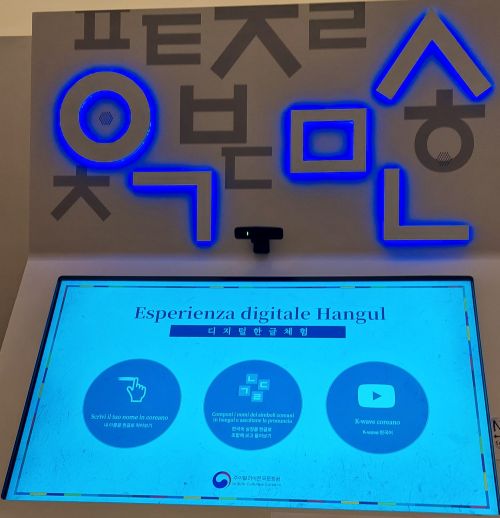
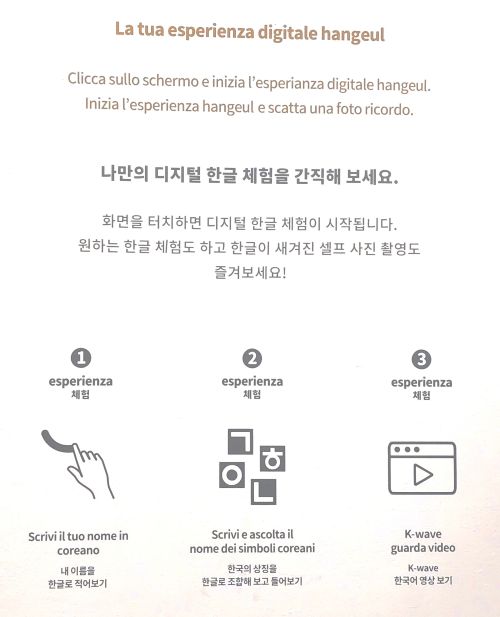
On 23 October, a video was posted on the YouTube channel of the Korean Cultural Institute, which I am sharing here:
The video is accompanied by a beautiful and intense text that I have transcribed here:
''I am Hangul, the Korean alphabet [알면 알수록, 한글].
I have always been with you. I was born on this earth 579 years ago, and today I live with you: I am Hangul.
I was born from the heart of a great man. King Sejong, with his deep love for the people, gave life, with dedication and care, to seventeen consonants and eleven vowels. Thus, with twenty-eight letters, I came into the world. Since then, thanks to me, the people have been able to speak freely, write and share their thoughts. Among the people who speak and write to me, I continue to live, and through me, people have learned about the world. But I too have had difficult days. There were those who, with sacrifice and courage, risked their lives to protect me. Thanks to them, I survived.
The more people know me, the more they discover how simple and scientific I am. I am the only writing system in the world whose principle of creation we still know, and many scholars are in awe of my logic and rationality.
I am an alphabet that anyone can learn easily, a writing system that makes you happier the more you know it.
Today, I encounter extraordinary things in every corner of the world. Books and films written in me, songs, plays and musicals are loved by people all over the planet. Crossing borders, the whole world studies me and uses me to tell their stories. An extraordinary journey, born from the heart of one man.
And I, breathing together with you, will continue to write tomorrow. I am Hangul.''
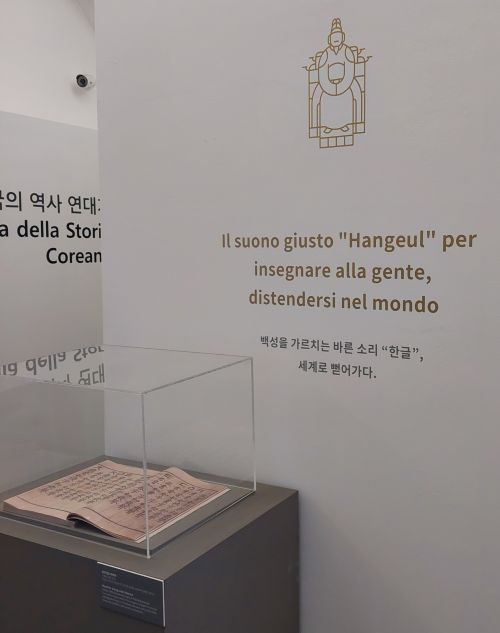
Personally, I have always been fascinated by the Korean language: its musical and deep sound enchants me, its logical and well-structured alphabet surprises me, and I love the presence of words with intense meanings, often untranslatable into my language, but capable of expressing feelings, moods and nuances of life that the Korean language has managed to name with delicacy and poetry.
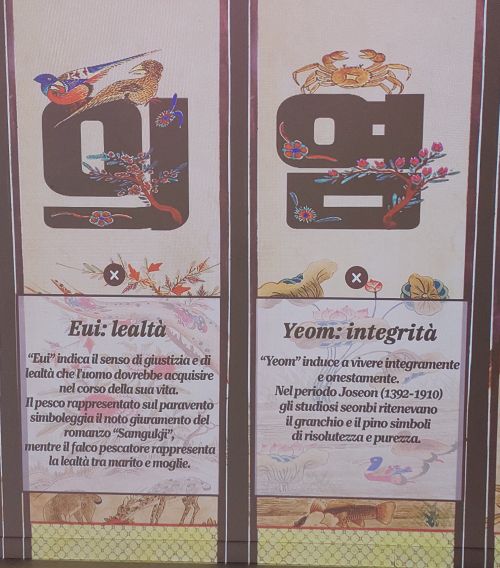
Info and credits:
Korean Cultural Centre, in Roma, Italy
How about this article?
- Like2
- Support0
- Amazing0
- Sad0
- Curious0
- Insightful0


